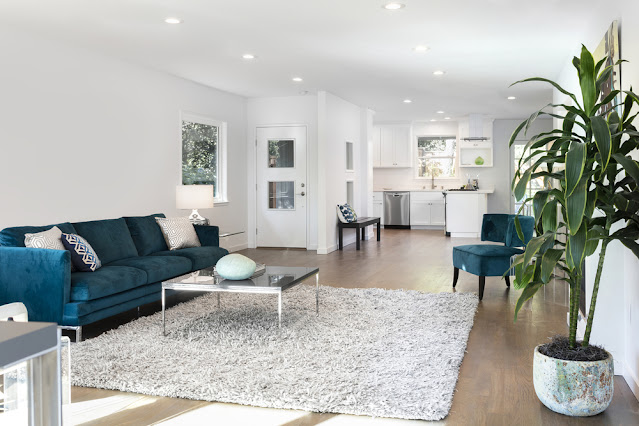How do I choose an area rug for my living room?
Rug Styles
There are as many rug online styles as there are furniture styles, lighting styles, or room styles, which means there's a practically ceaseless variety of choices. Rooms are not, at this point restricted to conventional Persian rugs or exemplary European styles. Along with these revered choices are modern and contemporary options, for instance, striking floral, solids or geometric, and basic Jutes.
Color
Color is a characteristic beginning stage while picking an area rug. You have to consider what shades you like and what you'd prefer to live with every day, but that's not all. The color of your area rug will establish the feel for the whole room hence an essential choice.
On the other hand, you have to ponder how various colors will work with your
current decor. Rooms with a lot of shades and patterns often work best with an
area rug that has impartial tones or a solitary color. If you don't have
furnishings, consider how unique rug colors will work with the tones of the
flooring, walls, and roof. The rug can either stick out or mix in, so consider
what impact you need to make when thinking about color.
Rug Patterns
When it comes to patterns not everyone is an enthusiast, however, if your furniture and walls are solid and vibrant, a designed carpet can truly rejuvenate your room. Similarly, if you have designer furniture, a solid rug can have an establishing, nuanced impact. It's about parity; if your room is now outfitted, consider before picking a mat.
If
the rug is one of the primary things you're buying, however, consider what
pattern is right for you. Do you need something eye-catching or somewhat more
subtle? The impact a pattern has on a room is intently attached to its shades,
so consider how the two will work together.
Area Rug Sizes
An area rug that is excessively small for the room is one of the most common embellishing mistakes. For most normal estimated rooms, there ought to be around 10 to 20 inches of bare floor between the edges of the rug and the walls of the room. Contingent upon the size of the room, you can go as low as eight inches and as high as 24 inches. In any case, ensure the carpet is in the center in the room and the distance between the rug and the wall is the equivalent on each of the four sides.
You
can also use area rugs to
characterize spaces. If you have an open-concept space or you need to layer
rugs, the rules can be somewhat extraordinary. Consider the area you need to
highlight and pick a size-dependent on that, however, recollect that it's
smarter to go too large than excessively little.
Texture
Consider how you need the rug to feel before you make a purchase. Wool rugs can include warmth and delicateness while natural materials, for example, sisal and jute are somewhat unpleasant. Silk is delicate and delightful but also costly and tough to clean. Mull over these things when shopping.
High Pile
vs. Low Pile
While
picking a rug, it's imperative to consider what sort of pile you need: low,
medium, or high. Low-pile area rugs are commonly sturdier than high-pile rugs
and are simpler to vacuum and keep clean. They're also more affordable than
high-pile rugs. Area rugs with a more extended pile are gentler and richer
underneath and can help make rooms look cozier and all the more welcoming. As a
general rule, a room that gets a great deal of pedestrian activity will profit
by a low-pile rug, for example, a dhurrie or kilim rug, while a thicker rug
will last longer in a room that doesn't get a ton of traffic.
Lifestyle
Your
lifestyle ought to be a major deciding component in what area rug you at last
pick. If you have kids or pets, a white floor covering with a high pile is
presumably not the best decision. If you expect that your area rug should
manage a ton of wear and tear, a flat weave rug with a pattern that covers
stains is worth considering, as it will be simpler to maintain and keep clean.
On the other hand, to make a feeling of solace and extravagance, a flat weave
rug presumably won't work. Rather, you'll need something softer with a higher
pile. Simply know that it won't rise to harm as well as something with a lower
pile.
Maintenance
While picking a rug, be honest to yourself about how much work you are happy to place into maintaining it. Most rugs should be vacuumed and turned consistently. Flatweave rugs are easy to vacuum, however, you can also take them outside and beat them out as it was done in an old-fashioned way. High-pile rugs are harder to clean, and some must be either conveyed or expertly cleaned in the home.
It
doesn’t matter what type you pick, make certain to use a rug pad that is viable
with the rug material and the deck underneath. Try not to open an area rug to direct
sunlight if you can avoid it, and certainly don't allow stains to set. If do
any of these things, you may demolish your rug, no matter what type you choose.






Comments
Post a Comment